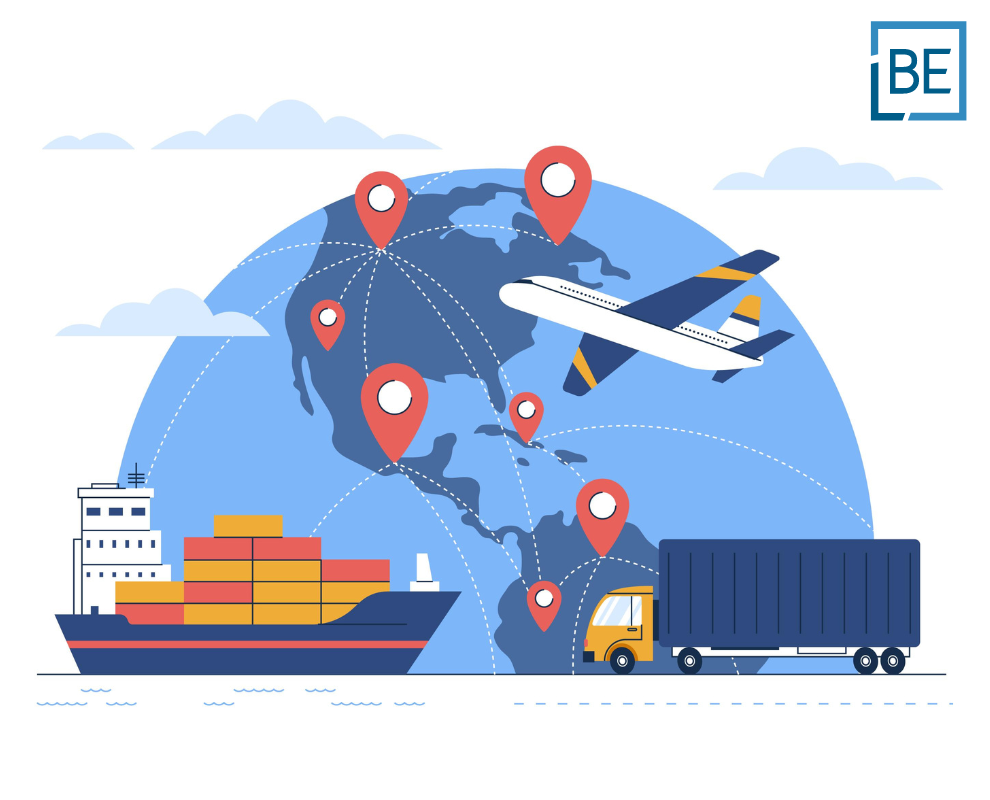Belaws Home ›› Thailand ›› Blog ›› Your Guide to Registering an Import/Export Company in Thailand
legal
Your Guide to Registering an Import/Export Company in Thailand
21/04/2023
Thailand has emerged as a significant player in the global market, making it an attractive location for businesses looking to expand their operations. Setting up an import/export company in Thailand can be profitable, but the process can seem daunting, especially for those unfamiliar with the country’s legal and regulatory framework.
This guide will walk you through the step-by-step process of registering an import/export company in Thailand, including the requirements and procedures to ensure your business’s smooth and successful establishment.
Key points
- Importing and exporting certain goods can be done by 100% foreign-owned companies.
- There are different types of trading companies in Thailand, such as general trading companies, specialized trading companies, and trading companies for international business.
- The benefits of an import/export company in Thailand include access to a vibrant market, cost-effective operations, and a skilled workforce.
- Considerations when opening an import/export company in Thailand include registering the company with the Thai government, obtaining necessary permits and licenses for import-export businesses, and understanding the regulations for specific categories of goods.
- Foreigners can register an import-export company without any restrictions for certain categories of goods under the List 3 category.
What is an import/export company in Thailand?
Thailand is a popular destination for businesses looking to expand their trade activities in the Southeast Asian region. One way to establish a presence in Thailand’s market is by establishing an import/export company. An import/export company is a business entity that specializes in importing and exporting goods between different countries. Trading companies act as intermediaries between the manufacturer or supplier and the end-user or customer.
In Thailand, trading companies are commonly referred to as “trading houses” or “trading firms.” These companies are often located in major cities such as Bangkok, Chiang Mai, and Phuket, which are hubs for trade and commerce.
What are some examples of import/export companies in Thailand?
Thailand has different types of trading companies, each with unique characteristics and advantages. Some of the common types of trading companies in Thailand include:
General Trading Companies:
General trading companies trade a wide range of products across different industries. They usually have a diverse portfolio of products and can trade in any market segment, including electronics, clothing, food, and beverages.
Specialized Trading Companies:
Specialized trading companies focus on a specific product or industry. They have in-depth knowledge and expertise in a particular market segment and can provide specialized sourcing, quality control, and logistics services.
Trading Companies for International Business:
Trading companies for international business specialize in exporting products from Thailand to other countries. They usually have a broad network of international clients and can handle various aspects of the export process, such as documentation, customs clearance, and freight forwarding.
What are the benefits of an import/export company in Thailand?
Operating an import/export company in Thailand offers the following benefits for investors.
Access to a Vibrant Market:
Thailand’s robust economy and thriving market make it an ideal destination for businesses looking to expand their trade activities. Trading companies can take advantage of the country’s strategic location to access the vast market of Southeast Asia.
Cost-Effective Operations:
Thailand has a low cost of living and a favorable tax regime, making it an attractive destination for businesses looking to reduce their operational costs.
Skilled Workforce:
Thailand has a skilled and diverse workforce, which can help businesses navigate the complexities of the Thai market.
Considerations when opening an import/export company in Thailand
If you’re considering expanding your business into Southeast Asia, setting up an import/export company in Thailand could be lucrative. However, navigating the legal requirements and permits needed to do so can be a daunting task. In this post, we’ll walk you through the steps you need to take to open an import/export company in Thailand.
First and foremost, you’ll need to register your company with the Thai government. This involves obtaining a business registration certificate and a tax identification number. You’ll also need to open a bank account in Thailand to conduct financial transactions.
Once you’ve completed this initial stage, you must determine what licenses and permits you’ll need to import and export goods. Thailand’s Department of Foreign Trade is responsible for issuing the necessary permits and licenses for import-export businesses. For certain items, such as food and beverages, additional permits may be required from other governing bodies.
It’s essential to have a solid understanding of the permits required for your specific type of business. Different categories of goods are subject to regulation by different authorities. For example, the FDA is responsible for issuing licenses for exporting and importing pharmaceuticals and legal substances. The Ministry of Finance oversees gold exports and imports. Knowing which governing bodies are responsible for regulating your specific category of goods is essential for obtaining the necessary permits.
If you’re a foreigner, it’s worth noting that the Foreign Business Act allows registering an import-export company in Thailand without any restrictions for certain categories of goods. However, other categories may require you to have a Thai partner or obtain additional permits.
What items are unrestricted for foreign trading companies?
The Foreign Business Act of Thailand allows foreigners to register an import-export company without restrictions for certain categories of goods. These goods fall under the List 3 category, which includes products that are not prohibited or restricted under Thai law.
However, it is important to note that for List 3 goods, some regulations and requirements still need to be followed. For example, the company must have a minimum capital of 2 million baht and must employ at least 4 Thai employees.
Additionally, certain goods are prohibited or restricted under Thai law and cannot be imported or exported without a special permit or license. These include firearms, drugs, and certain types of chemicals and hazardous materials.
Some examples of unrestricted (List 3) goods include:
- Office equipment and supplies, such as printers, copiers, and paper products
- Household appliances, such as refrigerators, washing machines, and air conditioners
- Clothing and textiles, including fabrics, garments, and accessories
- Toys and games, including video games, board games, and puzzles
- Books, magazines, and newspapers
- Food and beverage products, such as coffee, tea, and packaged snacks
- Cosmetics and personal care products, including skincare and beauty products
- Sports equipment, such as bicycles, golf clubs, and tennis rackets
- Electronics and computer equipment, such as smartphones, laptops, and tablets
- Construction materials, such as cement, steel, and bricks.
What is the best company structure for an import/export company?
A Limited Company, is the most popular form of business structure in Thailand. This is due to the flexibility offered to business owners. Foreigners can establish a Limited Company as a joint venture with a Thai National or as a 100% foreign-owned entity.
For companies who wish to import/export unrestricted goods, 100% foreign ownership of a company is permitted. However, should the company trade restricted items as per the Foreign Business Act or engage in other business activities restricted under the FBA, the company must obtain a Foreign Business License or be majority owned by Thai shareholders.
However, being a minority shareholder in a Thai Limited company does have some advantages over a 100% foreign-owned company. For example, a company with less than 50% foreign-owned shares is considered a Thai company and, therefore, not subject to the restrictions of the FBA. Such companies can import/export restricted items without worrying about breaching the FBA.
It is also possible for foreigners to have control of a Thai Limited company while still adhering to the ownership requirements of the FBA. This is due to the Thai interpretation of the law being about ownership and not controlling a company. Under the FBA, Foreigners can have majority voting rights and control in a Thai limited company through preference shares and weighted voting rights.
It is important to note that using nominee shares in Thailand is expressly prohibited by the Foreign Business Act. A nominee shareholder is a person (Thai National) who has shares in a company but has no legal rights or ability to control nor manage the company.
For more information about the Foreign Business Act, please see our blog post here.
What are the requirements for establishing an import/export company in Thailand?
To conduct business legally in Thailand, it’s essential to prepare the required documentation as requested by the Thai authorities. Starting a trading business in Thailand involves obtaining key documents such as:
- KSK1 application form,
- Bank account details,
- Company registration seal,
- Company affidavit,
- VAT certificate and power of attorney.
- If you intend to import cigarettes, alcohol, or medications, you’ll need specific licences and authorization.
Finally, it’s crucial to obtain the necessary licences for the category of goods you wish to import or export.
Do I need an import/export licence?
In Thailand, import and export licenses are required for businesses engaged in international trade. The Department of Foreign Trade issues these licenses under the Ministry of Commerce.
Import License:
An import license is a document that allows an importer to bring goods into Thailand. To obtain an import license, the importer must provide the following documents to the Department of Foreign Trade:
- A commercial invoice
- Bill of lading or air waybill
- Packing list
- Tax identification number (TIN)
- Other relevant documents, such as a certificate of origin or sanitary and phytosanitary certificate if required.
- Once the documents are submitted, the Department of Foreign Trade will review and verify the information. The importer will be issued an import license if everything is in order. The license is valid for one year and can be renewed.
Export License:
An export license is a document that allows an exporter to ship goods out of Thailand. To obtain an export license, the exporter must provide the following documents to the Department of Foreign Trade:
- A commercial invoice
- Bill of lading or air waybill
- Packing list
- Tax identification number (TIN)
- Other relevant documents, such as a certificate of origin or sanitary and phytosanitary certificate if required.
- Once the documents are submitted, the Department of Foreign Trade will review and verify the information. The exporter will be issued an export license if everything is in order. The license is valid for one year and can be renewed.
It’s important to note that some goods may require additional licenses or permits from other government agencies, such as the Food and Drug Administration or the Department of Agriculture. In addition, certain goods may be subject to import or export restrictions or prohibitions.
Import and export licenses are necessary for businesses engaged in international trade in Thailand. The Department of Foreign Trade issues the licenses and require specific documents to be submitted. Businesses need to ensure they have all necessary licenses and permits before engaging in international trade to avoid any legal or financial issues.
How can Belaws help?
For more information about starting an import/export business in Thailand, why not talk to one of our experts now?
This article is for information purposes only and does not constitute legal advice.
Our consultations last for a period of up to 1 hour and are conducted by expert Lawyers who are fluent in English, French and Thai.
Consultations can be hosted via WhatsApp or Video Conferencing software for your convenience. A consultation with one of our legal experts is undoubtedly the best way to get all the information you need and answer any questions you may have about your new business or project.
USD 150
Up to 1 hour
Online payment (Paypal or Credit card)
Legal consultation can be conducted in English, French or Thai
Legal consultations are handled by experienced lawyers from the relevant fields of practice
Frequently asked questions
How to register import export company in Thailand?
To register an import-export company in Thailand, you need to follow a few steps. Firstly, you need to obtain a Foreign Business License from the Department of Business Development (DBD) or the Board of Investment (BOI). Secondly, you need to register your company with the Ministry of Commerce. Finally, you need to obtain a Tax Identification Number (TIN) from the Revenue Department.
Which company is best for import and export?
It is not possible to name a specific company as the best for import and export as it depends on various factors such as the type of products you want to import/export, the countries you want to trade with, and your specific requirements. However, there are several well-established companies in Thailand that have a good reputation in the import-export industry, such as the Thai Trade Center and the Thai Chamber of Commerce.
What is the main import and export of Thailand?
Thailand’s main exports are electrical appliances, computer components, vehicles, and parts, chemicals, and plastic products. On the other hand, Thailand’s main imports are crude oil, refined petroleum, electronic integrated circuits, and chemicals.
What is the top export industry in Thailand?
The top export industries in Thailand are the automotive industry, the electronic industry, and the food industry. These industries account for a significant portion of Thailand’s total export revenue.
How to register a company in Thailand as a foreigner?
Foreigners can register a company in Thailand by following a few steps. Firstly, they need to obtain a Foreign Business License from the Department of Business Development or the Board of Investment. Secondly, they need to register their company with the Ministry of Commerce. Finally, they need to obtain a Tax Identification Number from the Revenue Department.
How do I get a Thai export permit?
To obtain a Thai export permit, you need to submit an application to the Department of Foreign Trade. The application should include information about the products you want to export, the destination country, and the quantity. Once your application is approved, you will receive an export permit.
How to start import export business?
To start an import-export business, you need to follow a few steps. Firstly, you need to research the market and identify the products that have a high demand in the target market. Secondly, you need to obtain the necessary licenses and permits. Thirdly, you need to establish relationships with suppliers and buyers. Finally, you need to set up logistics and shipping arrangements.
How to get a Thailand import export license?
To get a Thailand import-export license, you need to obtain a Foreign Business License from the Department of Business Development or the Board of Investment. Once you have obtained the Foreign Business License, you can register your company with the Ministry of Commerce and obtain a Tax Identification Number from the Revenue Department.
Related articles
Subscribe today
Subscribe today
To our newsletter for all the latest legal news
in South East Asia, Belaws updates and
special promotions on our services.
To our newsletter today for all the latest legal news in South East Asia,
Belaws updates and special promotions on our services.







